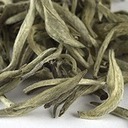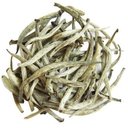Mouling Estate SFTGFOP Arunachal Pradesh White Tea
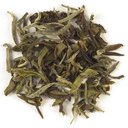 |
|
Commercial Description
The beautifully handcrafted leaves are laced with an abundance of silver tips in this white tea offering from Arunachal Pradesh, located north of the Assam district. An herbaceous aroma sets the stage for the bright, sweet character. Floral hints and notes of fresh melon emerge in the balanced, golden yellow cup, ending with a crisp finish.
Ratings & Reviews
Page 1 of 1 page with 1 review
 54 Aroma: 6/10 Flavor: 3/5 Value: 2/5
54 Aroma: 6/10 Flavor: 3/5 Value: 2/5Alex Zorach (1453 reviews) on Dec. 9th, 2018
An exorbitantly-priced tea that didn't deliver the quality I demand in this price range, and in the end, wasn't that enjoyable to drink. This is the first white tea I have ever tried that was produced in any region of northeast India other than Darjeeling. I remain open minded, but this experience was a let-down. Thin-bodied, not that aromatic, and requiring a great deal of leaf to brew to sufficient strength.
The dry leaf of this tea looks like a typical white peony tea (incidentally, in the sample it looked much more broken than in Upton's picture), but the smell was most interesting. There are hints of melon. It's hard to put into words, but the smell reminds me distinctly of a specific room at one of my friend's houses, with notes of wood, perhaps a hint of dust and a faint hint of smoke. The aroma of the dry leaf is complex already, and I'm eager to brew it to see what happens.
The aroma and flavor of the brewed cup was disappointingly weak. In the brewed cup I get notes of melon, with a hint of smoke, and a lingering creamy aroma, hinting at vanilla, and a few notes of black pepper. There is a light sweetness. Overall character is dusty...there's a sort of flat astringency that runs through the whole sip equally, leaving my palate to feel a bit dusty or sandy. Yet the tea still seems thin-bodied, even with the astringency. The aroma has dusty notes too reminiscent of some Pu-erh.
When brewed more strongly, the fruity notes come out more. They're so strong the tea almost tastes like a flavored tea, with a strong aroma of melon or canned pineapple.
Resteep is similar, a little less aromatic and more full-flavored, but still weak and uninteresting. The first time I brewed it, I poured out the resteep after drinking only about a third of it. When I brewed this tea again, I used a lot more leaf and let the second cup steep for 12 minutes, and this produced a better cup that I finished. The resteep though was still relatively uninteresting.
I didn't like how I felt after drinking this. In spite of its thin body, it left an unpleasant astringency in my mouth, and I didn't get that comforting, calming feeling I usually get from drinking tea. It didn't feel particularly caffeinated, but I felt ever-so-slightly off after drinking it. It felt slightly harsh on the stomach as well.
This tea was somewhat intriguing, but was not my thing. It was more interesting than enjoyable. It was also exceptionally expensive, and I think not worth the price. If you want to order this, just order a small sample to make sure it's something you actually want. I'm glad I only ordered the sample, and even there, it seemed like a lot of money ($4.25 for only 7 grams) for what was in the end an underwhelming experience. Compare to any number of inexpensive bai mu dan (white peony) or shou mei teas, I would take just about any of them over this one.
Page 1 of 1 page with 1 review
More Pure Tea (Camellia sinensis) from Arunachal Pradesh, India from Upton Tea Imports
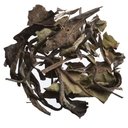
Special Grade Shou Mei White Tea
| Style: | Shou Mei White Tea |
| Region: | China |
| Caffeine: | Caffeinated |
| Leaf: | Loose |
1 Rating
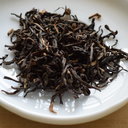
Donyi Polo Estate SFTGFOP Tippy Cl.
| Style: | Black Tea |
| Region: | Arunachal Pradesh, India |
| Caffeine: | Caffeinated |
| Leaf: | Loose |
1 Rating


